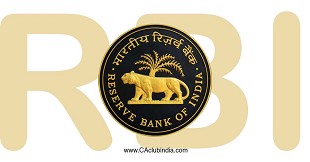Articles by Shivaprasad Laxman Chhatre
 View Full Profile
View Full Profile
Proposed Amendments to Bank Deposit Nominations - An urgent need for a healthy debate
Shivaprasad Laxman ChhatreThe Banking Laws (Amendment) Bill 2024 proposes significant changes to bank deposit nominations, introducing successive and simultaneous nominations.
Why RBI withdrew the most popular money market product collateralized borrowing and lending (CBLO)
Shivaprasad Laxman ChhatreWhy are major financial market regulators ignoring statute/s, while pushing new products/policies, and exotic ideas, overlooking serious systemic, legal risks to the market segment/s they regulate?
Why banks stopped issuing standalone ATM cards?
Shivaprasad Laxman ChhatreBanks will not easily give up this debit card stream of revenue generation unless the RBI comes with an iron hand. Such ATM cards will be useful mainly to the senior citizen class, risk-averse and/or less technology savvy class of the bank customers.
A Comprehensive Guide to the Supreme Court's Rulings on Safe Deposit Lockers in India
Shivaprasad Laxman ChhatreThe Supreme Court of India's directions on hiring safe deposit lockers- - new locker agreement/s-confusion on stamping- many aspects the locker customers of banks need to know.
Card network portability ambiguity in RBI's circular
Shivaprasad Laxman ChhatreRBI's directions on Card's network portability - ambiguity. What needs to be done to ensure card users get the desired benefits?
Can Banks freeze inoperative SB and CD Accounts, return cheques issued and stop access to ATM service?
Shivaprasad Laxman ChhatreIn this article, I have attempted to highlight a few related aspects like recklessness at Integrated Ombudsman's office.
Can banks freeze a customer's account for non-compliance with Re-KYC (KYC review)?
Shivaprasad Laxman ChhatreNeither RBI on its own can direct, a partial or total freeze of Re-KYC due (non-compliant) bank account nor it can delegate such authority to any bank/branch to impose such a freeze. RBI has formally confirmed that the directions it had given in Sept 2014 were applicable before the amendment on 20th April 2018.
PMC bank's scheme of amalgamation: Was it not a travesty of justice?
Shivaprasad Laxman ChhatreIn this write-up, I have used the terminology retail, institutional deposit as has been used in the Scheme of amalgamation of PMC Bank with Unity Small Finance Bank (USFB) as published in the gazette of India notwithstanding it is a ridiculous and misleading terminology not consistent with provisions of DICGC or any existing law.
What PMC bank’s different classes of depositors, creditors would get if the proposed Scheme of amalgamation is approved?
Shivaprasad Laxman ChhatreAfter a big fraud that was reported, in September 2019, inspections conducted by RBI showed complete erosion of capital and substantial deposit erosion of the bank.
Are current methods of customer grievance redressal in RBI regulated entities adequate to redress the concerns of consumers?
Shivaprasad Laxman ChhatreThe write-up is a bit lengthy but I am sure it will serve as one source of reference to millions of consumers dealing with Banks, NBFCs, and in the Digital Transactions space.
Popular Articles
- Revised MSME Criteria: Key Amendments and Threshold Changes for 2025
- CA Final Exams Now Three Times a Year - A Boon or Burden?
- Taxation of Digital Marketing Services: 44AD vs. 44ADA
- Important Things from GST Aspect to Remember this March 2025 ending!
- Finance Bill 2025: Key Tax Reforms for Charitable Trusts and Their Impact
- New Financial Year, New Rules: Tax Changes That Will Make (or Break) Your Wallet
- Important Tasks to do before 31st March 2025
- Comprehensive Analysis of GST Aspects in Bank Audits

Trending Online Classes
-
Certification Course on GSTR-3B Reconciliation with GSTR-2B through Chat GPT
 CA Deepak Gupta26 April 2025
CA Deepak Gupta26 April 2025











 CAclubindia
CAclubindia
